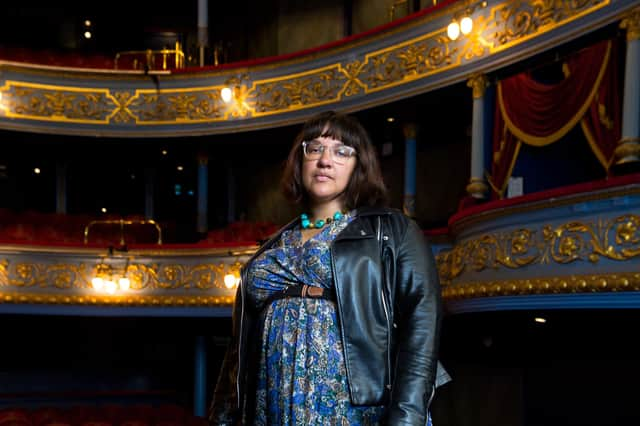National Theatre of Scotland to stage play inspired by death of Sheku Bayoh in police custody


Hannah Lavery’s play, which will be filmed on the stage of the Royal Lyceum Theatre in Edinburgh, which will explore the issues surrounding the case of the father-of-two using real-life testimonies.
However Lament for Sheku Bayoh is also billed as a “non-apologetic reflection on identity and racism in Scotland today.”
Advertisement
Hide AdAdvertisement
Hide AdThe three actors in the show will be filmed in front of an empty auditorium and the full play made available to theatregoers to watch online around the world in November.


There have been widespread concerns from friends and relatives of Mr Bayoh over the circumstances of his death in Fife in 2015 amid claims that racism was a key factor. The 32-year-old never regained consciousness after being restrained by police officers in the street in Kirkcaldy.
A full public inquiry into the case was announced last year by the Scottish Government following prolonged pressure and dismay that none of the police officers involved would face prosecution over his death.
Lavery has described the show, which was initially developed by the Royal Lyceum and the Edinburgh International Festival, as a “personal response to the tragedy and an expression of grief for the loss of the human behind the headlines.”
Lavery, who grew up in a mixed-race family in Edinburgh, said: "My overwhelming feeling when I was asked to write the play and started speaking to people about Sheku Bayoh is that they really didn't know about the case at all.
"I decided to see what I could find out myself sitting with my laptop, by googling his name and following leads from there.
"I read loads of different articles and went back to the original transcripts of what people said as much as possible.
"I wanted to be able to say that I didn't have any special access and had found everything out as an ordinary citizen.
"I didn't set out to write a campaigning piece. I really wanted to write a stranger's lament for this young man also to raise questions about why we lost him, what it mean to us in Scotland and what it says to people of colour in Scotland like me.
"I hope that Lament for Sheku Bayoh will be the beginning of a journey for audiences, that it will leave them with questions that they want answered and that it will give them an energy to pursue a better Scotland.
“And for some of us it will be an opportunity to be seen and heard and to have an experience and a knowledge of this country shared.
“I think it's important for us to be able to talk about Scotland in an honest way, and to not turn our head away from the things that might feel uncomfortable or challenge the idea we have of ourselves.
Advertisement
Hide AdAdvertisement
Hide Ad"It's important for us all to see Sheku Bayoh as a human being -hugely loved, full of promise and with dreams for his future - and to take a moment to really mourn his loss.”
Lament for Sheku Bayoh, which can be seen on 20 and 21 November, is a centrepiece of NTS’s first full programme of post-lockdown events - which will all be staged without audiences.
Other highlights will include Ghosts, a multi-media show to be experienced via mobile devices and headphones on the streets of Glasgow, which will explore its little-known history of slave trading.
Jackie Wylie, artistic director at NTS, said: “The National Theatre of Scotland, as a theatre without walls, continues to adapt its model and innovate to ensure we can continue to connect with audiences across Scotland and beyond over the coming months, whilst theatre auditoriums remain closed.
“What theatre as a medium can do best is react to the issues facing us a nation.
“We’ll be bringing two important pieces of work to theatrical life. Both speak urgently to the times we’re living in by exploring current and historical issues of race, identity, and social justice, as well as blending the live experience through digital platforms.”